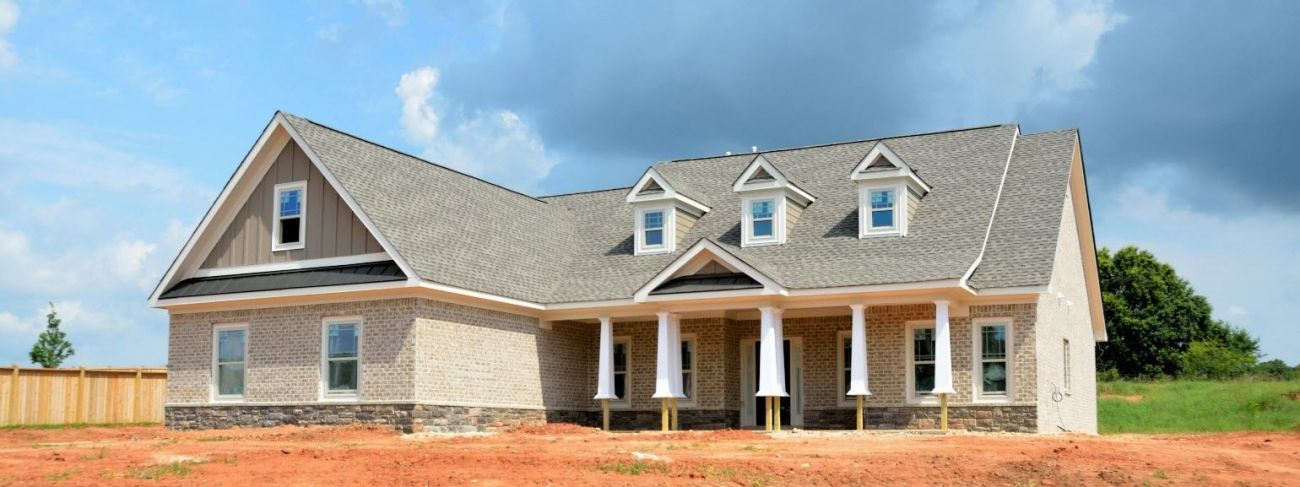Key Mortgage Terminology for Future Homeowners

First Financial Bank
As you take the exciting step of buying your first home, understanding mortgage terminology can help the process go more smoothly. Though not a complete list, we’re here to help you understand how some key mortgage terms are defined as you navigate your way to a new home.
How Do Mortgages Work?
A mortgage is a loan based on the assessed value of the property you’d like to own. For most people, the property is a home they are buying or planning to build. The mortgage lender finances the purchase, and you agree to pay the amount back with interest across a certain number of years.
Obtaining a mortgage is a process. While many other types of loans are completed relatively quickly, mortgage lending has many steps and processes that were put in place mainly to protect the customer from predatory lending practices.
The principal is the amount loaned to you to purchase your home. The principal multiplied by a certain percentage across a designated time period is the interest. This is the cost of borrowing the money from the lender. Your monthly mortgage payment is calculated to pay down the principal and includes the interest costs.
Whether the principal and interest payments remain constant or change over the life of the loan depends on the mortgage type.
Types of Mortgages
There are a variety of mortgage types. How they work depends on the source of the loan, for example, the Federal Housing Administration, and how the interest/payment rate works, such as a conventional fixed rate.
What Are FHA Mortgages?
The Federal Housing Administration (FHA) offers loan products through your lender for first-time homeowners and seniors who are looking to purchase a home, including traditional homes, condos, mobile homes, factory-built housing, and those looking to make energy improvements to their existing homes.
FHA mortgages enable your lender to provide favorable terms, like more affordable down payments and closing costs. FHA loans also offer more flexible credit qualifications than conventional loans.
What Are VA Mortgages?
VA mortgages are backed by the Veterans Administration to assist veterans, service members, and eligible surviving spouses in purchasing a home. Similar to FHA mortgages, the VA insures a portion of the home, allowing private lenders to offer more favorable terms, like low interest rates, limited closing costs, and no required private mortgage insurance (PMI). The VA also doesn’t require a down payment for this type of mortgage, although private lenders may require one from some borrowers.
What Are Rural Development Loans?
Rural development loans are guaranteed by the U.S. Department of Agriculture (USDA) and offered by participating lenders. They provide competitive rates for low- or moderate-income buyers looking to purchase a home in specified rural areas.
What’s a Conventional Fixed Rate Mortgage?
A conventional fixed-rate mortgage has the same interest rate for the entire life of the loan. This means your monthly payment will remain the same until the mortgage is paid off.
With predictable, consistent monthly payments, conventional fixed-rate mortgages are best for people who plan to own their homes long-term. They can also make it easier to budget around your monthly mortgage payments.
What is an ARM Mortgage?
An adjustable rate mortgage, or ARM, has a variable interest rate that adjusts according to the market. With an ARM, you’ll have a fixed interest rate for a set period, after which the interest rate for the remaining principal will adjust at certain intervals.
An ARM’s initial interest rate is typically lower than fixed mortgage rates. This makes it a good option for homeowners who are planning to sell after a few years or foresee an increase in their earnings. This type of rate can also help when interest rates are higher at the beginning. When the rate is reassessed, there is an opportunity for the interest rate to be lowered, and from that, the payment.
What is a Balloon Mortgage?
A balloon mortgage involves low monthly payments for the first series of payments, but then it is followed by a large one-time payment (also known as a balloon payment) to pay the balance of the principal and overall interest still owed on the loan.
While balloon mortgages may seem attractive for their low initial payments, they’re risky for both the lender and borrower. If you can’t make the balloon payment at the end of the term, you may need to refinance, sell the home, or obtain another loan. Additionally, balloon mortgages are non-qualifying loans that don’t adhere to the Consumer Financial Protection Bureau (CFPB) standards.
What is APR?
Annual Percentage Rate (APR) is the combination of interest and fees you are paying on the money you borrowed. It is the actual yearly cost of the funds you borrowed. The APR allows you to compare different mortgage offerings with a common measure.
What is the TIP?
The Total Interest Percentage (TIP) is a disclosure that is made as part of the mortgage closing. It is a calculation based on the total amount you initially borrowed (the principal) and what the total interest amount would be paid over the life of your loan. For example, if you borrowed $100,000 and the estimated interest amount for the full life of the loan is $47,000, then your TIP is 47%. This is not a perfect calculation. It doesn’t include your fees and if your rate changes sometime during the loan term, you sell the home before paying it off, or pay down the interest sooner, that percentage will change.

Additional Mortgage Terminology
In the process of securing a mortgage, you’ll encounter other terminology that may be unfamiliar to you.
What is Escrow on a Mortgage?
Escrow on a mortgage is a third-party account used to hold funds for property taxes and home insurance payments. It acts as security for both the homeowner and the lender, ensuring the property is insured and taxes are paid when due. Mortgage escrow accounts help lower the risk of loan default and having liens placed against the property.
What is a Mortgage Underwriter?
A mortgage underwriter is an individual employed by your lender who reviews your financial information and decides whether to approve your application for a home loan mortgage. Tonya Wilson, Consumer Lender at First Financial Bank, says, “The Underwriter is not the scary monster in the closet. The underwriter is actually your best friend in the mortgage process. The underwriter ensures your loan is compliant and a sound business transaction. Just remember when your loan officer, assistant, or processor says, ‘Our underwriter is asking for…’ – that information is necessary for your protection to ensure a fair and compliant mortgage loan. Please listen to your loan officer and the assistant/processor. They are not asking for things because they are being nosey. They are trying to help you get to the closing table as quickly and painlessly as possible.”
In addition to reviewing your financial information, the underwriter reviews the property appraisal that a professional has conducted to determine the home’s market value. They will also confirm a title search has been conducted and any findings. The appraisal ensures the mortgage amount aligns with the property value, while the title search affirms that the property doesn’t have outstanding claims or liens against it.
What is a Lien on a Property?
A lien is a legal claim against all or part of a property by a lender for an outstanding debt. When there’s a lien against a property, the property can typically not be sold or borrowed against for a loan.
What is a Mortgage Note?
A mortgage note is a legal document between a lender and borrower signed during the closing process. It essentially states that the borrower promises to repay the lender, detailing the payment amounts, schedule, and interest rate. A mortgage note may also be referred to as a promissory note or a mortgage promissory note.
What is a Closing?
The closing is the final step in acquiring a mortgage and buying your home. At this point, all the parties engaged in the process, including your lender, the current owner, and real estate professionals, sign off on the specific paperwork. This is the step where you sign the mortgage agreement or note that commits you to paying back the loan.
Additional Tips From Our Consumer Lending Team
Our team is here to help you navigate the mortgage process. With their extensive experience, they’ve provided some of their favorite tips to make it go smoother:
- “I recommend first-time buyers meet face-to-face with their loan officer. There is so much information that can be easier to comprehend when you look at the numbers together while they are being explained. Use a local mortgage lender instead of an online company. You will have questions even after closing, so get to know your loan officer. It makes a difference.” – Mary Tucker, VP of Mortgage Lending
- “Plan well in advance to have your credit pulled well before you plan to buy. That way, we can be sure you are ready, and if it is not quite there yet… we can make a game plan. Same thing with your down payment. Plan ahead to save for it.” – Ethan Adamson, VP and Mortgage Loan Officer
- “When asked for all pages of a document– that means all pages. All pages of the bank statement, paystub, tax returns, and any documentation requested. Even if it is blank.” – Tonya Wilson, Consumer Lender
Taking the Next Step
Understanding some of the key terminology can help you move forward through the home loan application process and acquire the mortgage you need with confidence. If you have any questions, talk to an experienced mortgage lender like First Financial Bank. In the last 90 years, our team has worked with many individuals and families to navigate the mortgage process successfully and buy their first home.




